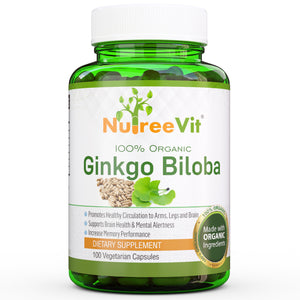Green tea has been consumed for centuries in various cultures for its numerous health benefits. Today, modern science has begun to unravel the mechanisms behind these benefits and confirm many of the positive effects traditionally attributed to it. Below, we explore the main benefits of green tea supported by scientific studies.
1. Powerful Antioxidants
One of the most notable aspects of green tea is its high content of antioxidants, particularly catechins, with epigallocatechin gallate (EGCG) being the most potent. Antioxidants are compounds that protect our cells from damage caused by free radicals, unstable molecules that can damage cells and contribute to aging and various diseases.
Scientific Studies
-
Cancer Epidemiology, Biomarkers & Prevention: This study found that green tea consumption is associated with a lower risk of breast cancer in Asian women, partly attributed to the antioxidants present in green tea.
-
Cancer Letters: Research in this journal suggests that EGCG has inhibitory effects on the growth of cancer cells in various types of cancer, including skin, lung, and prostate cancers.
2. Improved Brain Function
Green tea contains less caffeine than coffee but enough to produce an effect. Additionally, it contains an amino acid called L-theanine, which can work synergistically with caffeine to improve brain function.
Scientific Studies
-
Psychopharmacology: A study showed that the combination of L-theanine and caffeine present in green tea can improve attention and cognitive function, providing a more stable alertness without the jitters associated with coffee.
-
Journal of Nutritional Biochemistry: The catechins in green tea have neuroprotective effects, which could reduce the risk of neurodegenerative diseases like Alzheimer's and Parkinson's.
3. Increased Fat Burning and Weight Loss
Green tea can increase fat burning and metabolic rate. This is partly due to the combination of caffeine and EGCG, which together can enhance thermogenesis (heat production in the body) and fat oxidation.
Scientific Studies
-
International Journal of Obesity: This review found that green tea extracts can increase fat burning and metabolic rate, thus contributing to weight loss.
-
American Journal of Clinical Nutrition: A study showed that green tea can increase thermogenesis and fat oxidation, which can be beneficial for weight loss and improving physical performance.
4. Reduced Risk of Cancer
The antioxidants in green tea can protect against oxidative damage, which is known to contribute to the development of cancer. Various studies have found an association between green tea consumption and a lower risk of several types of cancer.
Scientific Studies
-
Cancer Epidemiology, Biomarkers & Prevention: In addition to its effect on breast cancer, this study also noted a reduced risk of cancer in general among those who regularly consume green tea.
-
Cancer Letters: EGCG and other catechins in green tea have shown inhibitory effects on cancer cells, suggesting that green tea can play a role in cancer prevention.
5. Improved Cardiovascular Health
Green tea can improve several cardiovascular risk factors, including reducing LDL cholesterol (the "bad" cholesterol) and increasing HDL cholesterol (the "good" cholesterol). It can also improve endothelial function and reduce the oxidation of LDL particles.
Scientific Studies
-
The American Journal of Clinical Nutrition: This meta-analysis concluded that green tea consumption is associated with a significant reduction in LDL cholesterol levels and an improvement in cardiovascular health markers.
-
JAMA: A study observed that regular green tea consumption is related to a reduction in mortality from cardiovascular diseases, suggesting that it may be a beneficial drink for heart health.
6. Blood Sugar Control
Some studies suggest that green tea can improve insulin sensitivity and reduce blood sugar levels, which is beneficial for people with type 2 diabetes.
Scientific Studies
-
Diabetes Care: This study found that green tea consumption can improve insulin sensitivity and help control blood glucose levels in people with type 2 diabetes.
-
Annals of Internal Medicine: Suggested that green tea can reduce the risk of developing type 2 diabetes, possibly due to its beneficial effects on insulin sensitivity.
7. Brain Protection in Old Age
The catechins in green tea may have several protective effects on neurons, reducing the risk of neurodegenerative diseases such as Alzheimer's and Parkinson's.
Scientific Studies
-
Journal of Nutritional Biochemistry: Research suggests that the catechins in green tea have neuroprotective effects, which can help protect the brain in old age and reduce the risk of neurodegenerative diseases.
-
Frontiers in Aging Neuroscience: This study highlighted the potential of green tea in protecting against cognitive decline associated with aging.
8. Improved Dental Health
Green tea has antibacterial and antiviral properties that can help reduce the risk of infections and improve dental health.
Scientific Studies
-
Journal of Periodontology: Indicated that green tea has beneficial effects on periodontal health due to its antimicrobial and anti-inflammatory properties.
-
Caries Research: Showed that green tea can reduce the formation of dental caries and improve overall oral health, thanks to its antibacterial effects.
9. Benefits for the Skin
The antioxidants in green tea can protect the skin from sun damage, reduce inflammation, and improve skin elasticity and hydration.
Scientific Studies
-
Journal of Dermatological Science: Studies have shown that EGCG from green tea can protect the skin against UV damage and improve skin elasticity, reducing wrinkles and inflammation.
-
Experimental Dermatology: This study found that topical application of green tea extract can improve skin hydration and elasticity, and reduce redness and inflammation.
10. Immune System Support
The antibacterial and antiviral properties of green tea can also help strengthen the immune system and reduce the risk of infections.
Scientific Studies
-
Journal of Nutritional Biochemistry: Highlighted that the catechins in green tea have antimicrobial properties that can help prevent infections and improve immune function.
-
Phytotherapy Research: Research suggests that green tea can enhance immune response and reduce the incidence of common infections.
Conclusion
Green tea is an extraordinarily healthy beverage, supported by numerous scientific studies demonstrating its multiple benefits. From improving brain function to reducing the risk of chronic diseases such as cancer and cardiovascular diseases, green tea offers a wide range of health benefits. Incorporating green tea into your daily diet can be a simple and effective way to improve your overall well-being.
This blog provides an overview of the scientific literature supporting the benefits of green tea. To obtain the maximum benefits, it is important to consume high-quality green tea and maintain a balanced diet and healthy lifestyle.





